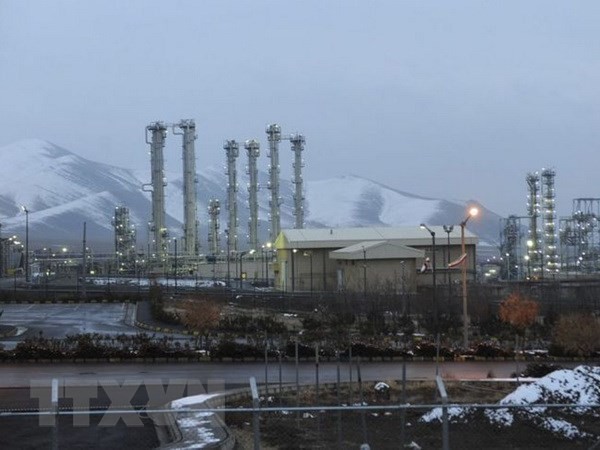(VOVWORLD) - Israel’s accusation that Iran is hiding a nuclear program has raised public concern, especially with US President Donald Trump’s deadline to renegotiate the Iran nuclear deal drawing close. Otherwise, the US will withdraw from the deal. Israel’s accusation has added fuel to the fire, despite diplomatic efforts by some EU leaders to save the historic deal.
 The Arak nuclear reactor in Arak city, Iran. (photo: AP/VNA) The Arak nuclear reactor in Arak city, Iran. (photo: AP/VNA)
|
Israeli Prime Minister Benjamin Netayahu said on Monday that Israel has new evidence that proves Tehran has a secret program to build nuclear weapons. But Iran denies it.
Sensitive time
President Trump has set a May 12th deadline for the Joint Comprehensive Plan of Action (JCPOA), commonly known as the Iran nuclear deal. Israel has disclosed 55,000 pages and 55,000 files on 183 CDs that it says prove that Iran has concealed its nuclear intentions.
Most of the evidence that Israel released on Monday existed before the signing of the Iran nuclear deal in 2015. The accusation will sparked a debate over whether Iran has violated the deal it signed with the US, Britain, France, Russia, China, and Germany.
Israel will benefit the most if the Iran nuclear deal is scrapped. Israel always opposed the JPCOA and called it a historical mistake. It said the deal commitments cannot eliminate the risks from Iran’s nuclear weapons and that Iran with nuclear weapons would be a threat to Israel’s existence.
The second beneficiary will be President Trump, because breaking up the Iran nuclear deal was one of his campaign promises in 2016. Although Israel’s information has not been verified, Trump has resumed criticising the JCPOA and says he will examine the information before deciding to pull the US out of the deal. Secretary of State Mike Pompeo said Israel’s information is accurate and new.
EU seeks to save JPCOA
In contrast to the US and Israel, many EU countries are trying to save the Iran nuclear deal. They say Netanyahu’s accusation has created no new doubts about Iran’s compliance with the deal signed in 2015. The International Atomic Energy Agency (IAEA), the sole international agency monitoring the deal, says Iran has abided by all commitments.
On April 24th and 27th, the White House received French President Emmanuel Macron and German Chancellor Angela Merkel, who both want the US to stay in the deal. American and EU officials have coordinated efforts to accommodate Trump’s demand to revise the deal.